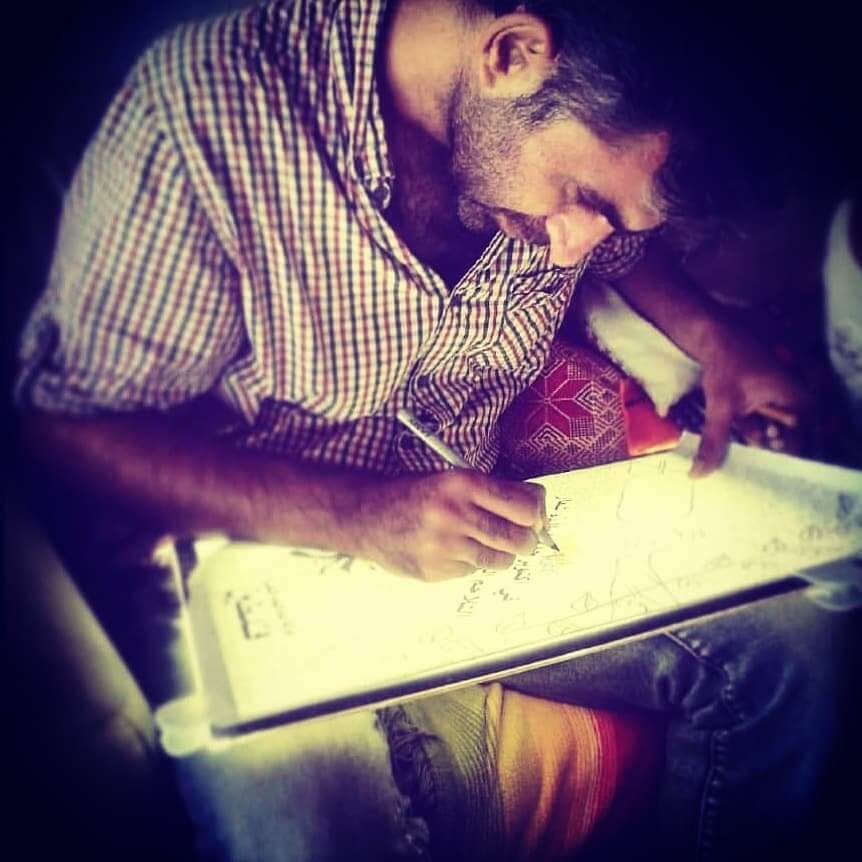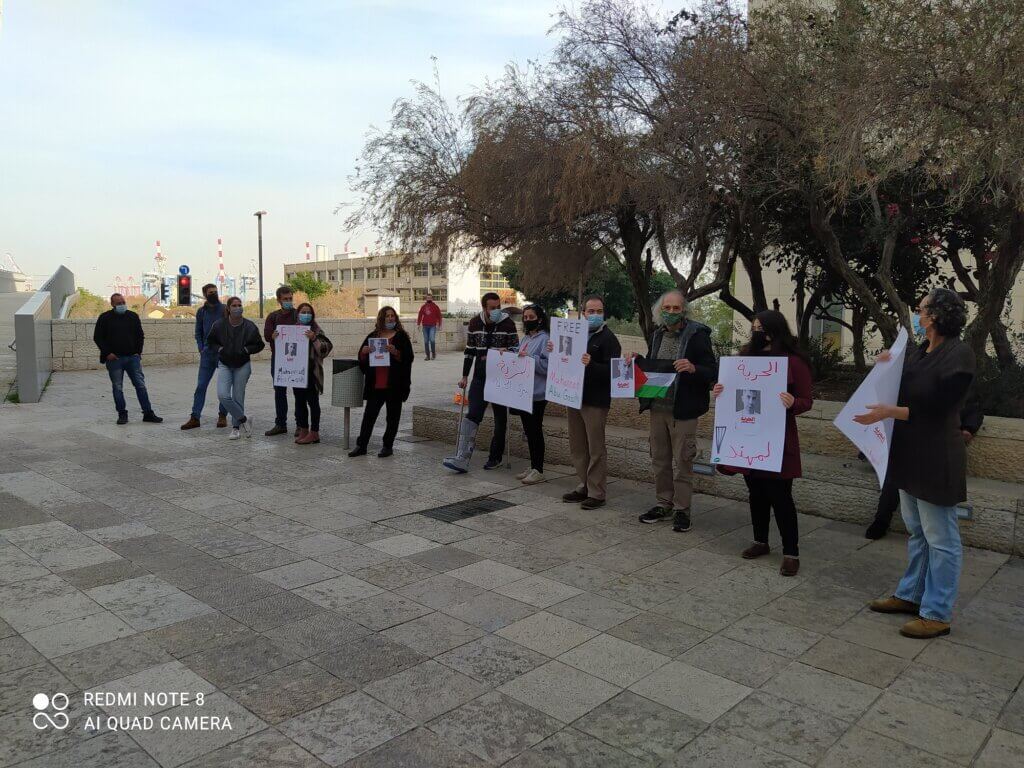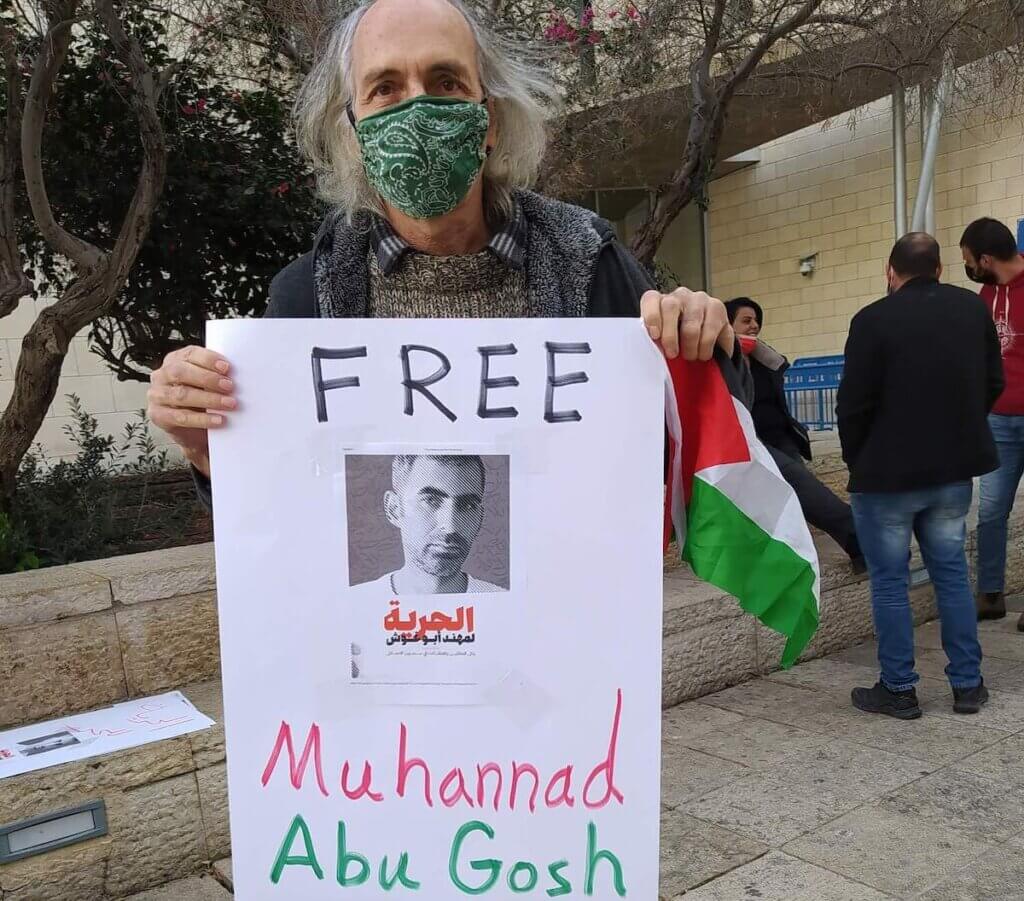On Monday morning, January 25, Israeli police invaded the home of Muhannad Abu Ghosh, 44, in the center of Haifa and carried him away. As a long-time activist for Palestinian rights, he is almost used to this type of encounter, if you can ever get used to it. As a teenager in the 1980s, he was arrested for several years for taking part in the activities of the first Intifada in his native Al-Quds. The last time he was interrogated by the Shabak was only a month ago. Then he was kidnapped in a raid of his home in front of his kids, but he went home free by the end of the same day. Over the years, he was interrogated by Israeli “security services” many times. He even was detained in Ramallah, under the “Palestinian Authority,” after, as a student in Bir Zeit university, he took part in a demonstration against France’s anti-Palestinian policy.
This time on Monday Abu Ghosh was not taken to regular interrogation. Shortly after being detained he was brought to the Haifa court where his detention was remanded for a whole week. He has not been arraigned or charged with any crime. He was prevented by a special decree from meeting a lawyer, a measure regularly used against Palestinian activists who are interrogated by the Shabak. While his lawyer was not informed where he is presently being detained, I have good reasons to believe that he is in the Shabak section in Jelemeh – where harsh conditions and the usage of all kinds of psychological and physical torture are the standard.

On Tuesday his lawyer, Khaled Mahajna, appealed both Abu Ghosh’s detention without charge, and the decree preventing him from meeting with counsel. Before the court hearings started, some 20 activists of Herak Haifa gathered on short notice for a solidarity vigil, calling for the release of their comrade.
All the court’s proceedings were held behind closed doors. Only the detainee’s wife was allowed into the court building, but she, also, was not allowed even to see him in court.
In a procedure common in Israeli courts, during the appeal hearing Shabak agents met the judge alone, without the presence of Abu Ghosh or his lawyer, to present him with their “secret evidence.” Neither the detainee, nor his lawyer, were allowed to know what it is all about. Finally, surprise surprise, the appeals were rejected.
Muhannad Abu Ghosh is a writer and an artist. His poignant satirical writing earned him many followers on social media. His book of short stories about the first intifada was released by a publisher in Beirut. He is also known as one of the founders of Herak Haifa, a movement that played a pioneering role in the struggle for both Palestinian national rights and progressive social agenda over the last 10 years.
Looking at his Facebook page after his detention I found he was one of the relatively few dedicated activists who commemorated the 10th anniversary of the Arab spring with a promise that its message of freedom will never die. Over a picture of snow on Jabal al-Sheikh, he agonizes for the suffering of the Syrian people and the Palestinian people on both sides of the mountain.
Haifa is supposed to be the most “progressive” place under Israel’s apartheid. It is supposed to give an example of “coexistence” between Arab and Jews under Zionist rule. But it is only a thin disguise to the continuing rule of Jewish supremacy over the native Palestinian population. The secretive and lawless Shabak is the utmost authority in all that is connected to the Arab population. They hold a “file” for each citizen and regularly invite young Palestinians (activists and others) for “interviews” – designed to keep them away from any political protest. Around five activists from Herak spent weeks under harsh interrogation in the Shabak dungeons in Jelemeh. Some previous examples of such arrests were reported here and here and here.

In a declaration demanding the immediate release of Abu Ghosh, Herak warned that by preventing him from meeting a lawyer, “his jailers aim to isolate him from the world and exert the utmost illegal pressure to break his steadfast spirit.” They mentioned that “he suffers from chronic back pain as a result of torture during previous arrests.”
Herak’s declaration ends by calling “on all Palestinian national and democratic forces, all human rights institutions and all people with a live conscience, to act quickly for the release of comrade Muhannad Abu Ghosh.”


